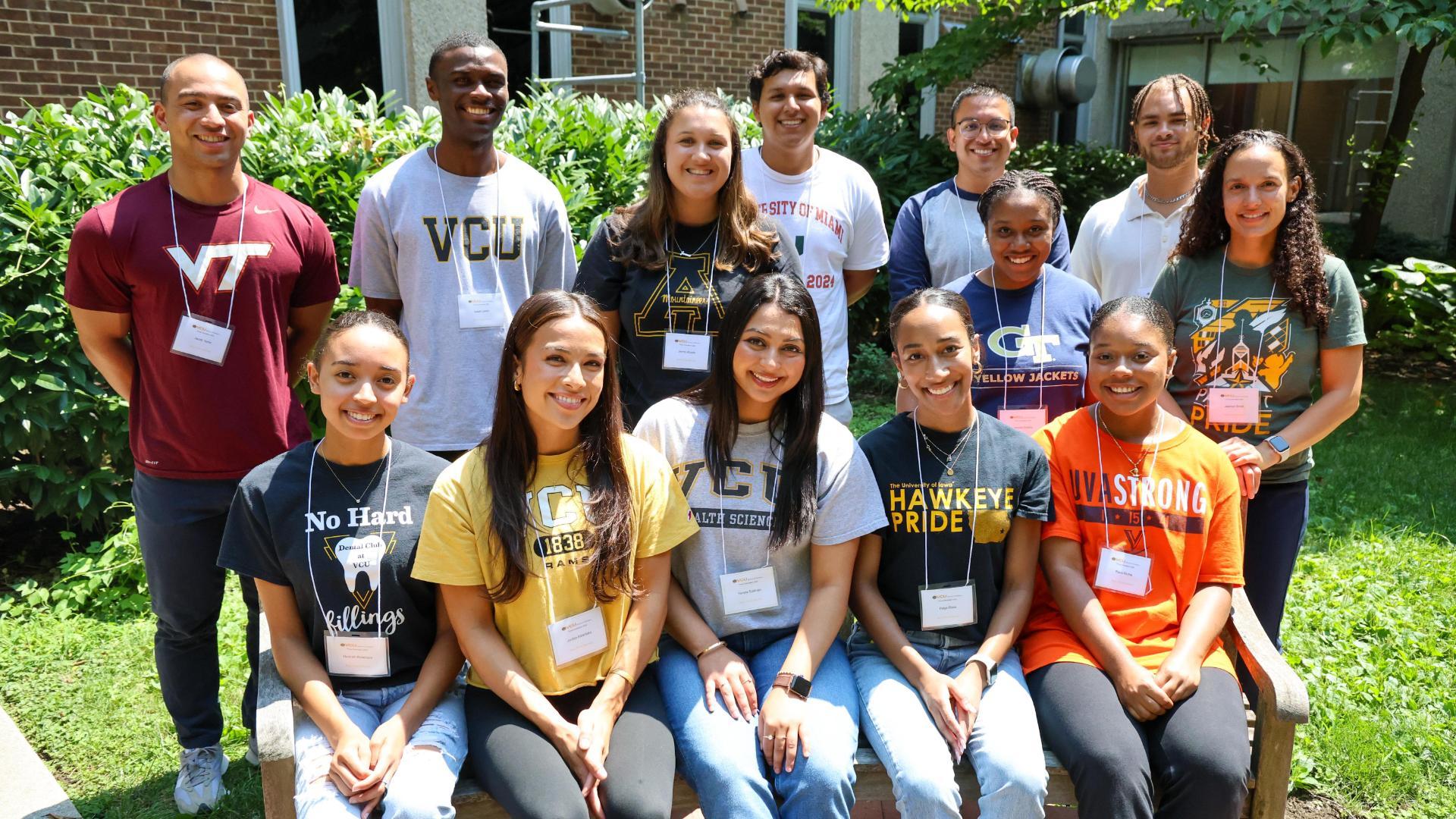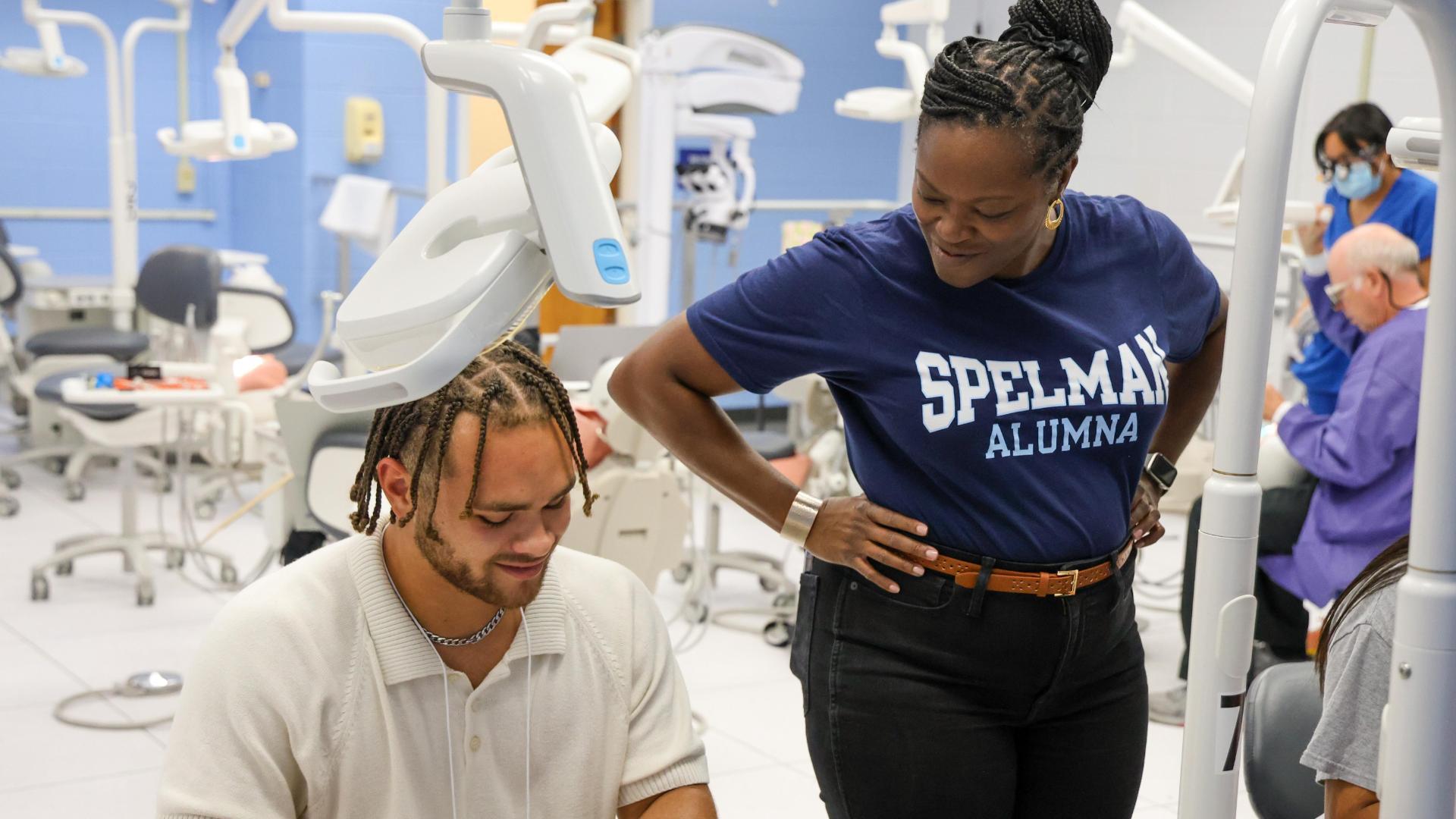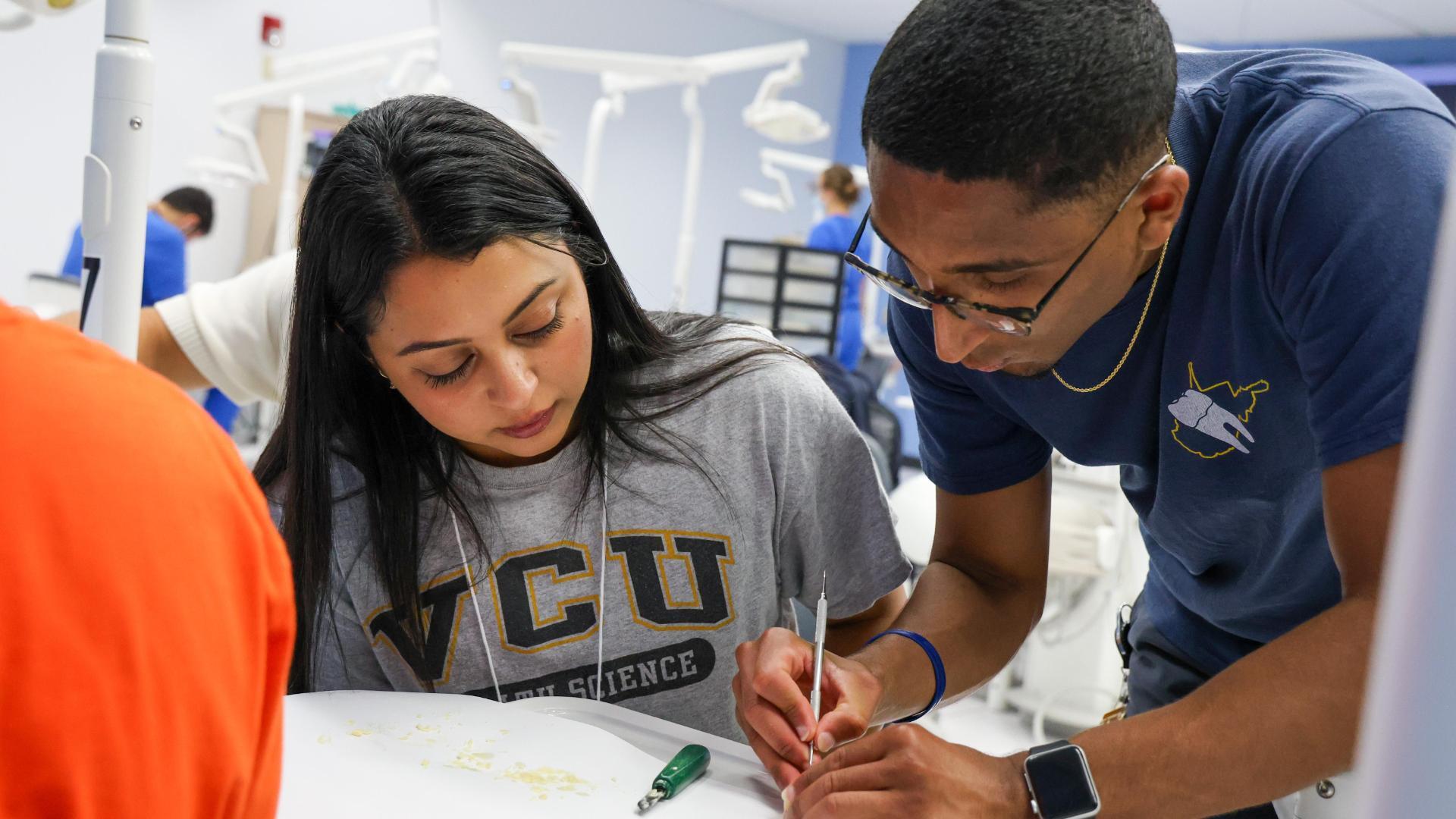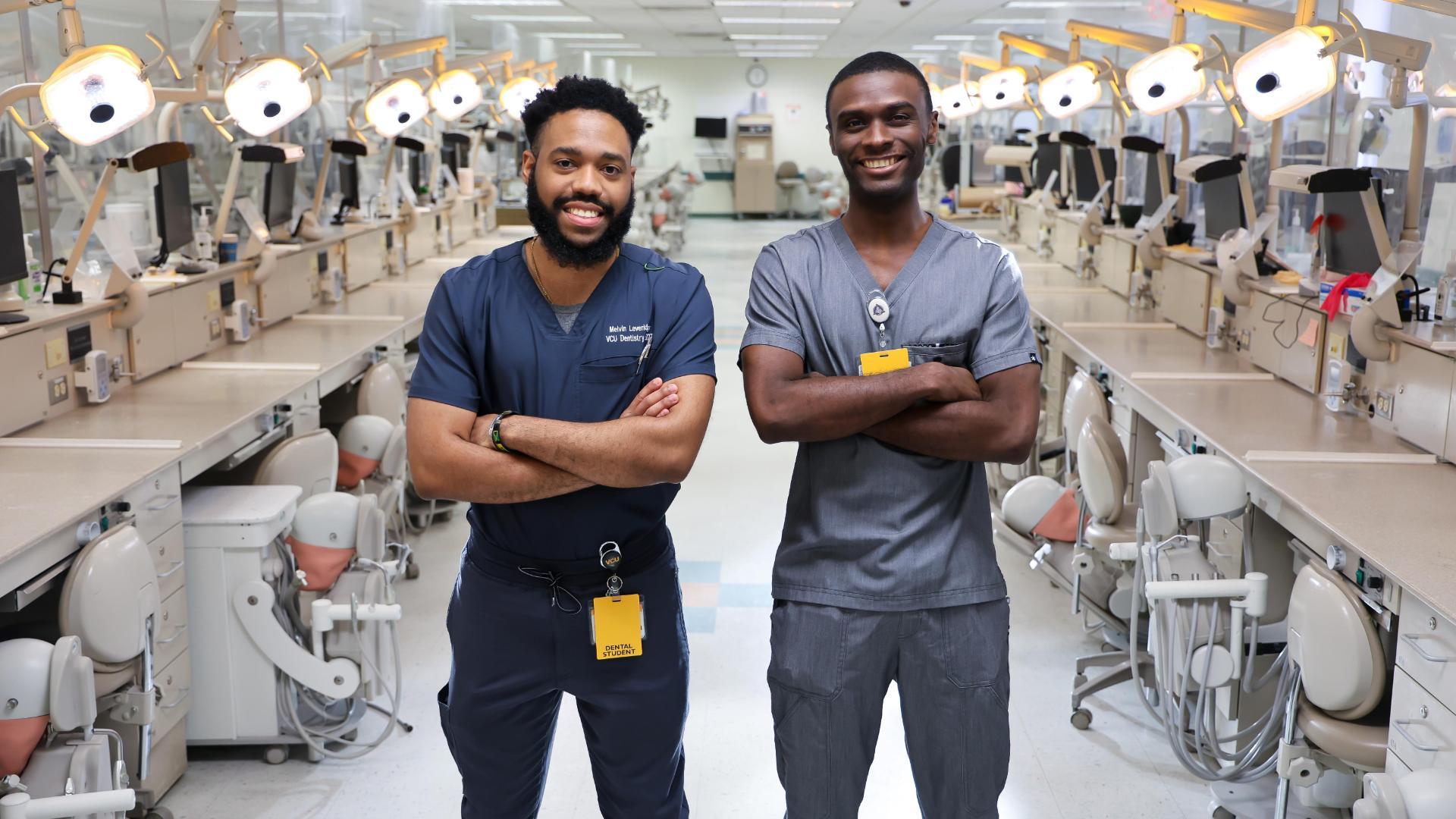
Thrive program provides support to ensure student success for historically underrepresented students
Starting dental school can be hard for anyone. Especially for first generation dental students or students from historically underrepresented backgrounds, receiving guidance and support can make a life-changing difference.
The Thrive program was born from a desire to help students find belonging and support when starting dental school.
“It’s important to have a family or network of people who might be experiencing the same things as you as a historically underrepresented student,” Tiffany Williams, D.D.S., M.S.D., FACD, said. “I think students who are first generation or coming from underrepresented backgrounds don’t have as much support sometimes, so having someone to go to for mentorship can help them navigate the challenges of starting dental school.”
Williams serves as program director, alongside Carlos Smith, D.D.S., M.Div., associate dean of Inclusive Excellence, Ethics and Community Engagement and Ruth Bravo-Anvez who serves as a coordinator for the program.

Students entering the program participate in a two-day orientation that includes team-building activities, partnering with a second-year mentor and clinical workshops. Following the orientation, students maintain contact with their mentors and have quarterly check-ins with the faculty advisors. One yearly tradition is Thrivesgiving, a holiday themed lunch that includes all Thrive students.
“I consider myself an overarching Mama Bear,” Williams said. “I want to do everything I can to help them maintain the connections they have formed and ensure that they feel supported and successful as they navigate dental school.”
The program coordinators hope that Thrive’s initiative will not only improve the experience of the student participants, but also inspire others to continue to tackle racial barriers throughout the field of dentistry.
“While the program has an initial focus on historically underrepresented students, the fact is, research shows that clinical and learning environments are optimized for each and every person, when the barriers most often affecting the most historically excluded are mitigated and eliminated,” Smith said.
Evidence shows that the more diverse class cohorts are, the greater the learning and knowledge shared across a cohort and the greater prepared students are for treating an increasingly diverse patient population.
“I often point to the work of well-known health equity scholar Lisa Bowleg when reiterating enhancing student success for one, actually enhances it for all. Her scholarship compels us to never ignore the qualitative experiences of even one,” Smith said.

The program was created by Susie Goolsby, D.D.S., former director of student recruitment at the School of Dentistry, and Dr. Alena Hampton, former Director of Student Experience within the Office of the Vice President for Health Sciences and current Associate Dean for Academic Affairs and Student Success for the College of Health Professions, in 2019. For the next few years, the Office of Admissions handled the operations until passing it on to the Office of Inclusive Excellence, Ethics and Community Engagement starting in 2024. Goolsby served as a mentor to Williams in handling the operations of the program.
“It’s important to acknowledge all of the hard work and dedication that has been done in creating this program over the last several years,” said Smith, who serves as a faculty advisor for Thrive. “It wouldn’t be what it is today without Drs Goolsby and Hampton.”
Pre-orientation programs are rooted in evidence-based practice for advancing and cultivating a diverse oral health workforce. While the Thrive program has its beginning in pre-orientation activities, it includes peer mentoring, faculty coaching and seeks to instill a needed confidence or reassurance that sometimes is lacking in first generation or historically underrepresented professional students.
According to Delta Dental Institute, only 3.7 percent of dentists are Black, 4.2 percent are Hispanic, and 11.8 percent are Asian nationally – and the frequency of dental visits among the Black, Indigenous, People of Color (BIPOC) community is significantly less than in white communities. Creating opportunities for underrepresented groups in the field of dentistry not only increases the number of diverse dental professionals, but also the rate at which diverse groups visit the dentist.
“I think it's important for students to feel like they have representation,” Bravo-Anez said. “Seeing people who look like them reflected in the faculty, staff and student body and being surrounded by individuals who have similar experiences can create confidence and belonging.”
Sixteen students from the Class of 2028 were selected to join the program. The students were invited to join by Williams, who sought to provide an opportunity for students from a wide array of backgrounds to meet each other and connect through shared experiences prior to starting school.
“It’s a great opportunity for them to make connections within the VCU School of Dentistry community and connect them to resources across the campus,” Bravo-Anez said. “Ultimately, we want to make sure they feel supported and achieve overall success in the program and in dental school.”

For Isaiah Lewis, a first-year dental student, it was an opportunity to connect with classmates and prepare himself for the hard work ahead.
“It helped me feel comfortable being here and starting with a strong support system,” Lewis said. “We’ve become friends with each other, and I can see that extending throughout and beyond dental school.”
Lewis was paired with second-year dental student Melvin Leveridge, who was a familiar face even before dental school. The two had met while participating in the Summer Academic Enrichment Program as undergraduate students. SAEP is designed to introduce students to dentistry, medicine, pharmacy or physical therapy health fields and prepare them for the application processes.
“Melvin requested me as his mentee because he already knew my journey to get here and could provide the guidance I needed,” Lewis said.
Since joining the program, Leveridge has successfully completed the first year of dental school and now hopes to pass on advice to new students.
“I’m passionate about helping people, so I was excited to have the opportunity to be a mentor,” Leveridge said. “I know what it was like to be in that position as a first year student, especially from a diverse background. If I could make the process easier for them in some aspect, then that’s something I’m happy to do.”
Leveridge found that Thrive helped him to adapt to changes and solve problems. His greatest challenge when starting dental school was the heavy workload and time management. At Thrive orientation, he was introduced to a solution.
“During orientation, they had us do an organizational activity that simulated managing all of the tasks that you have to do during the first few weeks,” Leveridge said. “We logged the hours that we would be in class, in labs and studying. It helped me mentally prepare myself for the weeks ahead and visually see that it was possible to manage. I’ve been able to maintain these time management skills throughout the whole first year.”
Both Lewis and Leveridge expressed their belief in the importance of representation and giving diverse student populations the chance to thrive.
“I’m grateful for the people the program has introduced me to,” Lewis said. “Overall, I feel a lot more confident about the year ahead.”
Williams expressed her hope that students can continue to find support and mentorship that give them the boost they need to succeed in dental school and beyond.
“We live in a world where everyone is different,” Williams said. “It’s important to learn how to not only coexist and navigate challenges, but to be at your best as a dental provider and create a stronger community that includes everyone.”